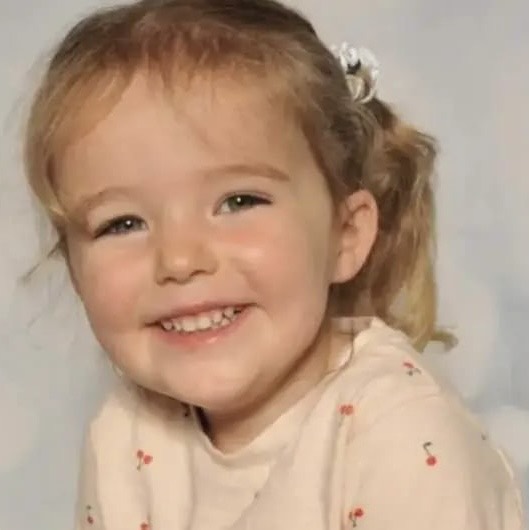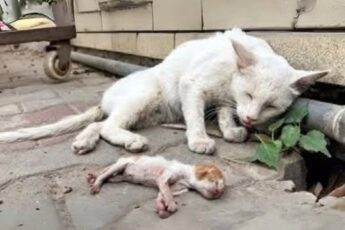The recent passing of little Ryleigh Hillcoat-Bee has left a community shattered and a family overwhelmed with grief and anger. Ryleigh, a bright three-year-old girl whose life was cut tragically short, was diagnosed with a rare disease called rhabdomyolysis—a condition so uncommon that it affects only about one in 200,000 people in the UK. It’s a disease that causes muscle tissue to break down rapidly, releasing harmful substances into the bloodstream, which can sometimes lead to kidney failure and other severe complications. For Ryleigh, however, by the time they knew what was wrong, it was already too late. Her story is one that has stirred controversy, deep heartbreak, and an urgent call for accountability.
The parents, whose names have been kept private out of respect for their privacy, are furious. Their grief was compounded by a sense of betrayal—they believed their daughter’s life could have been saved if her illness had been recognized earlier and treated properly. Before her death, Ryleigh had been admitted to Blackpool Victoria Hospital, where doctors conducted tests and observed her symptoms for several days. She was sluggish, floppy, not herself—signs that any attentive medical team should have recognized as the red flags of a neuromuscular crisis. But instead of the urgent investigation her condition warranted, medical professionals initially thought she was suffering from something less severe, like hepatitis or a chest infection.
The hospital’s diagnosis was based on blood work—particularly Creatine Kinase levels, which was found to be “extraordinarily high.” Such elevated levels are common in cases of severe muscle injury or breakdown, and they are crucial in diagnosing rhabdomyolysis. Despite this, doctors dismissed these key warning signs, concluding that her symptoms were due to common childhood infections. Meanwhile, Ryleigh’s condition continued to worsen. She appeared tired, sluggish, and floppy—warning signals for any trained clinician that something more serious was at play. Her parents watched helplessly as their energetic, vibrant daughter gradually lost her strength and vitality, feeling a growing sense that the signs were there but were overlooked.
The coroner, Alan Wilson, who conducted an inquest into Ryleigh’s death, described this as a “missed opportunity.” He was unequivocal in saying that the medical team treating her at Blackpool Teaching Hospitals NHS Trust had not acted upon the “red flags” they should have seen. Before her release, the medical staff failed to pursue further tests or seek advice from a neuromuscular specialist, which could perhaps have led to an earlier diagnosis of rhabdomyolysis. As a result, her condition was never identified in time, and her early warning signs went unheeded, robbing her of the chance for proper treatment.
Three months after her passing, Ryleigh’s family was faced with the devastating reality of what might have been, and their anger is palpable. Their grief is mixed with frustration—that a disease so rare and so treatable if caught early was ignored due to what they consider a lapse in judgment and established protocol. Diane Rostron, a medical malpractice lawyer involved in the case, stated that if the hospital had followed the advice to consult a neuromuscular specialist earlier, they might have diagnosed rhabdomyolysis before her organs failed. This, she argued, could have been an entirely different outcome for Ryleigh and her family.
In the wake of this tragedy, the family and the community are calling for accountability and change. They want hospitals to recognize the importance of listening to the early warning signals, especially rare diseases that can be easily missed or mistaken for more common illnesses. The hope is that Ryleigh’s story will serve as a wake-up call to medical professionals everywhere—that the tiniest details, if noticed and acted upon, can make the difference between life and death.
The heartfelt apology issued by the hospital’s trust expressed deep regret for Ryleigh’s passing and acknowledged that her family’s pain is immeasurable. But words can never fully fill the void left by such a loss. The family’s hope now lies in ensuring that lessons are learned from their daughter’s tragic story—so that no other child suffers the same fate.
We all wish her family peace and comfort in this incredibly difficult time. It’s a stark reminder of how fragile life is and how vital it is for caregivers and medical practitioners to listen carefully, observe keenly, and act swiftly when it comes to our youngest and most vulnerable. May Ryleigh find peace, and may her story inspire us all to seek better understanding, faster action, and compassion in the face of medical uncertainty.






